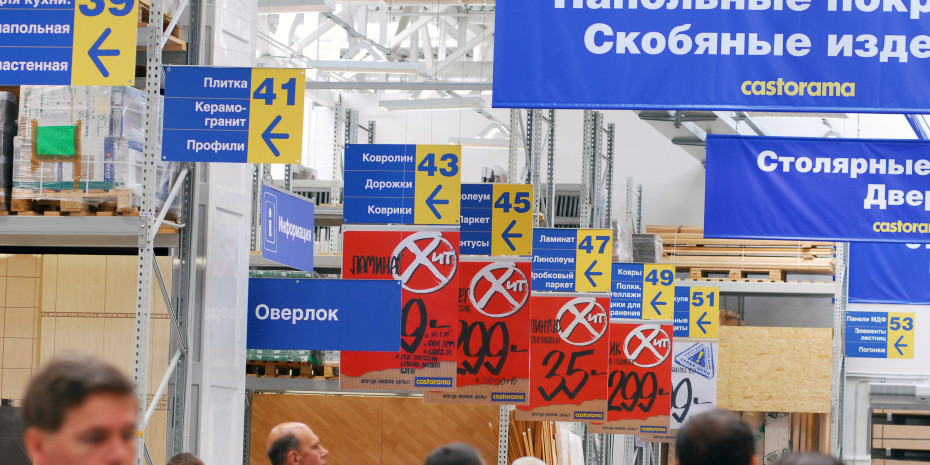The top echelons in the DIY retail companies in Russia - both the Russian firms and their foreign competitors - appear relaxed about the situation. DIY products are not directly affected by the sanctions. But there are two sore points: the dramatic drop in the value of the rouble and uncertainty regarding future developments. "Currently the consequences of the imposed sanctions are not that noticeable," says Ilya Kornyukhov, managing director of the Union DIY cooperative, for example. "But due to the significant growth of the currency rates, imported goods are becoming more expensive and for this reason less attractive for the customers." Demand is thus shifting in favour of Russian products. "Incomes of Russians are in roubles, so the growth in prices for imported production of up to 30 per cent will decrease their demand for such goods, which means that western manufacturers will lose turnover and Russian market share," commented Kornyukhov, voicing his expectations at the end of November.
The Russian DIY market is shrinking
The Russian DIY market is in crisis. After initial signs in the spring, it declined in the second half of the year. This is according to author …
The people at Maxidom don't regard the situation as posing much of a problem either. "At the moment, the EU sanctions and the Russian response are not touching the DIY market; therefore, we don't feel any impact," reports Maria Evnevich, a member of the board of directors. "Today more than 70 000 different items from Russia, the EU, China and other countries are sold in our stores and we don't have any difficulties with sourcing management or the availability of important brands and their products." The proportion of Chinese products has been increasing for a number of years, however. The British Kingfisher Group made reference in its latest quarterly report to the profitability of its Castorama stores in Russia, but the British noted at the same time that the biggest effect they had seen was the fall in the value of the Russian rouble, which affected the group's profits when the Russian profits were converted back into British pounds for reporting purposes. Ian Cheshire, CEO of Kingfisher up to the end of November, also talked about the price effect in the Financial Times: "There is a major disconnect between the consumer mood, which is really positive in Russia as they're all right behind President Putin, and the rouble effect…




